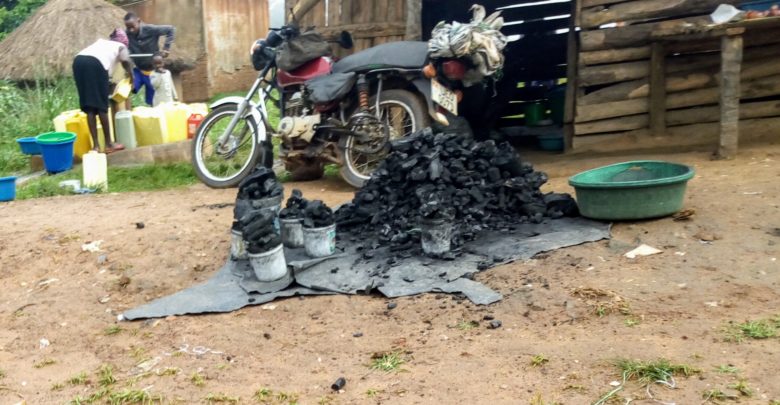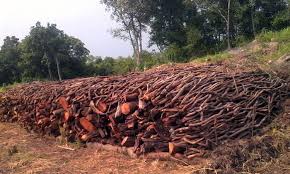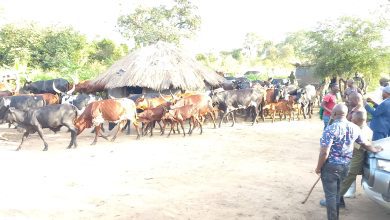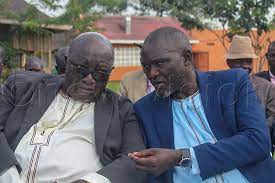
EnvironmentNational
Uganda Government in Upcountry Campaign to popularize the use of Renewable Energy Sources
Our target, together with our partners like PRK Communications, Ministry of Energy, GIZ and Uganda National Renewable Energy and Energy Efficiency Alliance –UNREEEA is that, by 2040, we want the uptake of renewable energies to increase by at least above 70 percent.
By Jesse Johnson James
Gulu-Uganda: The Ministry of Energy and Mineral Development has launched a new campaign to popularize the use of renewable sources of energy among upcountry communities.
The new campaign will promote cheap renewable technologies including installations of biogas digesters, on and off grid hydro power connections, solar energy, briquettes and geothermal investments in Northern and West Nile sub regions.
Mr. Grace Aldon Walukamba, the Communication Manager of Uganda National Renewable Energy and Energy Efficient Alliance (UNREEEA), an umbrella body of energy sector players, told this reporter in an interview recently from Gulu city. He says the aim is to increase uptake of renewable energy technologies by 70 percent by the year 2040.
Walukamba says the campaign is being funded by the German International Cooperation (GIZ) and will be implemented in partnership with other players in the industry.
“Our target, together with our partners like PRK Communications, Ministry of Energy, GIZ and Uganda National Renewable Energy and Energy Efficiency Alliance –UNREEEA is that, by 2040, we want the uptake of renewable energies to increase by at least above 70 percent.” Walukamba revealed
“Because it is possible if the right channels of communication and the right message is sent to the right audience and that audience knows how to produce and use this energies.” He went on
Mr. Richard Kyorakunde, a marketing officer of PRK Communications, one of the partners, says the focus is to empower small and medium enterprises to distribute the renewable energy products at affordable prices in the grassroots.
“We are working in partnership with different agencies but our main focus is to work with the small and medium entrepreneurs who are selling these products and help them to get to the market that they want to reach.”
“Most of them don’t have capacities in terms of budgets to run some of these campaigns and that is where the development world comes in to help them cover some bit of the marketing expense so that people are more aware about the products and they can actually come and experience and witness it.” Said Mr. Kyorakunde
Mr. Kyorakunde says this year’s annual energy fair will be held in Gulu town before moving to Arua for consumers to access efficient and durable renewable energy technologies for lighting their homes and businesses.
“An Energy fair is an annual event that is targeted for promoting and showcasing different technologies and products on the market. Previously we have been having it in Kampala but this particular year we are taking it closer to the community that we want to focus on and we are looking at having it in Gulu District then the following year we are taking it to Arua District and keep rotating in the region.” Said Kyorakunde
Timothy Jokkene Okee, a commercial farmer in Gulu District says such interventions should have been implemented by the government many years ago to save the region from devastation of deforestation. He said government should observe the affordability of renewable energies.
“For example if we are going to use gas, can the policy state that initial buying of the cylinders there is going to be some way whoever can contribute so that the cost of these cylinders are low. Those are some of the things we need to think about which are very practical. Secondly, the issue that comes with these equipment such as the issue of affordability comes,” says Jokkene.
22 year old Ms. Oliver Atimango, a resident of Gulu District noted that although her family doesn’t have any renewable energy source, there is need for people to opt for them since they are environmentally friendly.
“It can help the environment because it reduces on the destruction of tree since majority of the local community depend on charcoal and firewood as their primary sources of energy for cooking. Renewable energies can also help people in the rural areas since they lack electricity”, says Ms. Atimango
It is estimated that 70 percent of the total population in Northern Uganda uses charcoal as their primary energy source.
According to a 2017 Rural Electrification Agency report on up take of renewable energy sources in rural areas stands at 4 percent while the 2018 Statistical abstracts by Uganda Bureau of Statistics (UBOS) says access to electricity increased from 20 percent in 2015 to 22 percent in 2017.
Despite the increase, rural areas are the least under served with electricity connections as the total installed capacity of electricity power sources increased by 5 percent from 895.5 MW in 2016 to 937.8 MW in 2017.




